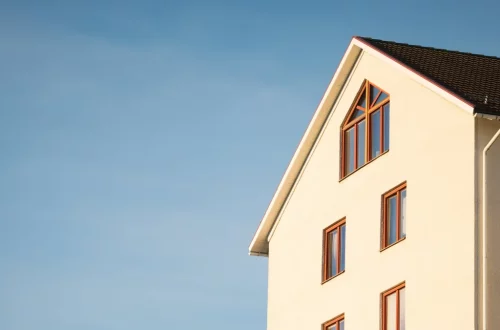Buying a house is one of the biggest investments we make in our lives, and saving for it can be challenging, requiring a special financial effort for many people. If you’re thinking of buying a house in the future but don’t know where to start saving, it’s a good idea to establish a plan to achieve this goal.
At AB Apartment Barcelona, we bring you the best tips and advice to help you buy your dream home as soon as possible. Take note!
Why is it important to have a savings plan to buy a house?
To begin with, creating a savings plan before buying a house allows us to have a financial cushion when we want to apply for a mortgage.
Additionally, you must keep in mind that besides the mortgage, you will need to save for other costs such as: deeds, property and transaction taxes, insurance, repairs, etc.
As you can see, buying a house requires taking many things into account. That’s why we recommend planning in advance so that you can achieve greater financial stability.
How much do I need to save before buying a house?
Generally, the management costs of buying a house range between 3% and 10% of the final price of the property.
Regarding the down payment, it is usually 20% of the property’s value, as this is the necessary percentage for the bank to grant the mortgage. However, this amount can vary depending on the conditions of your mortgage.
For example, if the mortgage is for €200,000 and the mortgage loan covers 85%, you will need to save €30,000.
Considering all the expenses mentioned above, to be on the safe side, you will need to save at least 30% of the price of the property you want to buy. Below, we’ll tell you how you can do this!
First steps before buying a house
- Determine your budget: The first thing to do is create a budget that reflects your expenses and income. If you’re going to spend less, it’s essential to know where you’re spending and how much. For this, you can download an app to track your finances or write it all down in an Excel sheet.
- Set a realistic goal: Once you’re aware of your main expenses, set a goal for how much money you want to save each month. It’s crucial that your goals are realistic, as being too ambitious can make them unattainable and demotivating. However, knowing your monthly expenses and savings, it’s also important to occasionally enjoy your free time and treat yourself.
- Pay off all your debts or outstanding loans: Another aspect to consider before buying a house is eliminating your debts. On the one hand, it’s preferable to settle any type of debt beforehand, as otherwise, the bank will already have a reason to deny your mortgage. On the other hand, by starting your balance without any passive expenses (long-term or short-term), you won’t hinder your savings efforts.
Best tips and tricks to start saving
1. Apply the 50/30/20 Rule
This well-known rule involves distributing your money in a reasonable and conscious way so that you don’t waste it. The rule is as follows:
- Allocate 50% of your money to essential expenses like your usual rent, bills, food, etc.
- Dedicate 30% to personal and leisure expenses. This includes all non-essential expenses, such as dining out, paying for streaming services, buying clothes, etc.
- Finally, save the remaining 20% for savings.
2. Open a Savings Account
One of the best tips for saving is to open a savings account. Once you’ve established how much money you want to save each month, create a separate bank account from your checking account. Having this second account allows you to deposit a portion of your salary as soon as you receive it, so your checking account only holds the money you want to spend. This way, you avoid the temptation of dipping into your savings!
Before opening a savings account, research the conditions and profitability offered by each bank and choose the one that suits you best. Also, consider whether it’s worth opening the account at the same bank where you’ll apply for a mortgage in the future.
3. Keep Track of Your Daily Expenses
Do you get coffee at the café every day? Are you paying for a gym membership but never going? Are you subscribed to Netflix, HBO, Prime Video, and all the digital platforms? These are just a few daily expenses that can create a hole in your pocket. Reflect and analyze your spending habits and see if you can do without any of them.
Even though it may seem like a small gesture, every penny counts!
4. Look for a Second Source of Income
There are many ways to earn some extra money to put into your savings account. If you have time, you can look for a second job or take on small paid tasks for your community. For example, if you have photography skills, you can advertise on freelance platforms and offer photography sessions.
Another great way to make money is to sell things you no longer use. You’d be surprised how many things you have at home that you no longer use!
We know that all of this involves extra sacrifice, but remember that the goal is to save to buy a house.
5. Buy Second-Hand Products
Since you’re selling your belongings on second-hand platforms, why not try being a buyer too? Nowadays, you can find all kinds of second-hand products (appliances, electronics, clothing, furniture…) in great condition!
Keep in mind that sometimes buying something too cheap can be a mistake and cost you more in the long run. So buy cheap but of good quality!
These are just a few ways to save each month. The most important thing is to make saving a habit. If you’re thinking of buying a house and need advice, don’t hesitate to contact us!





